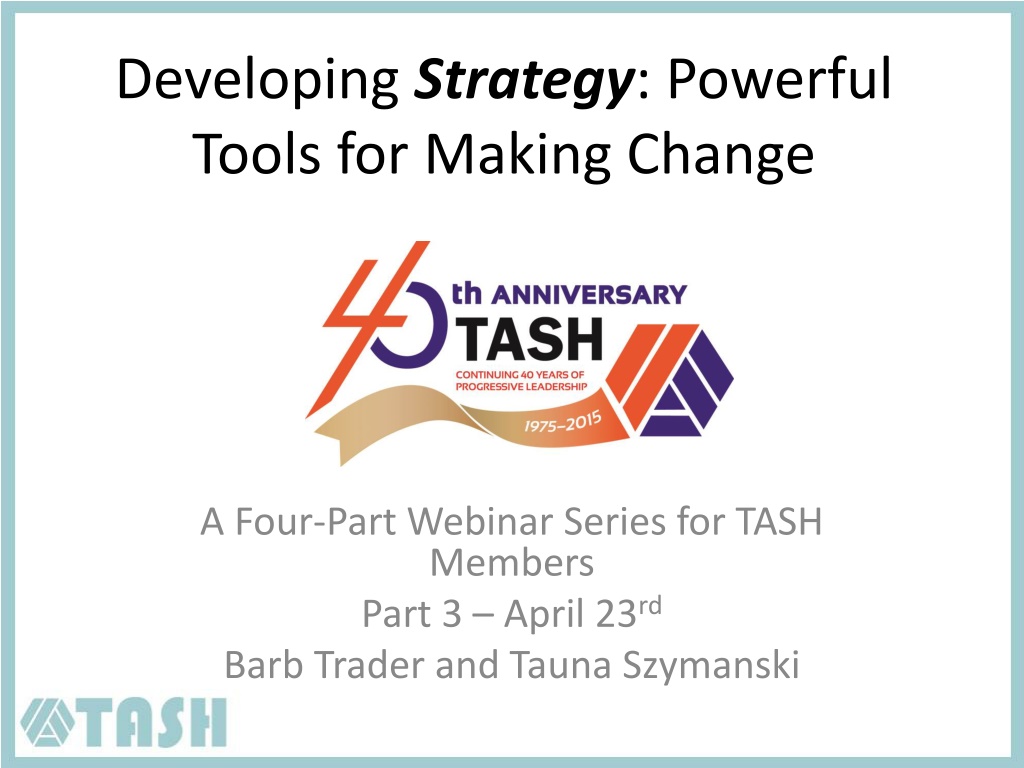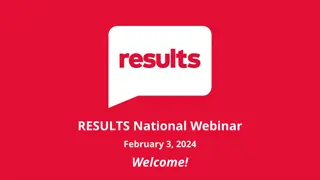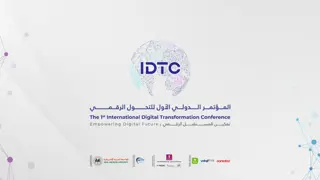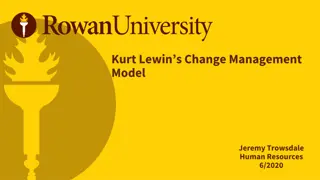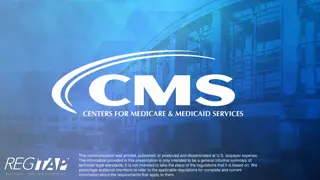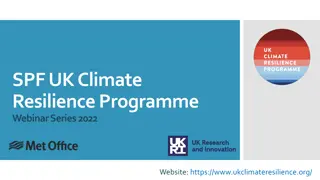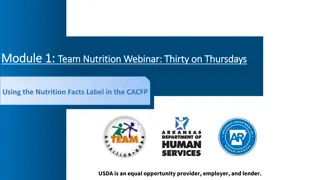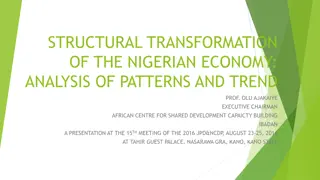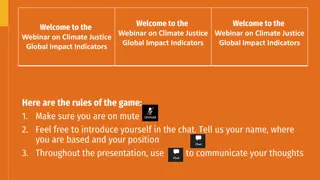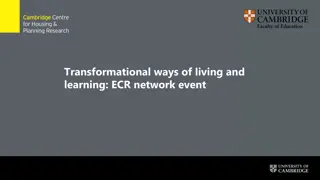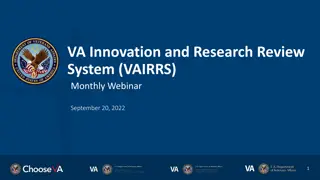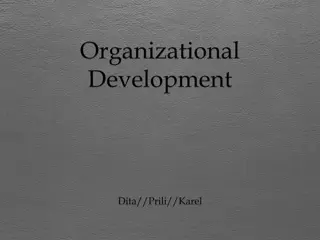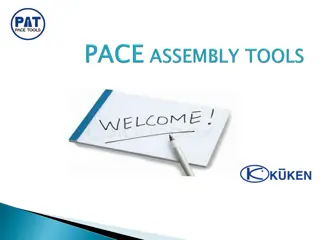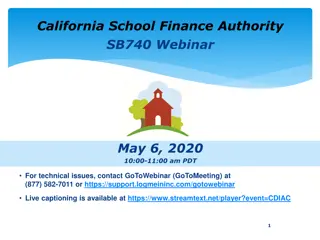Empowering Change: Tools for Transformation in TASH Webinar Series
Join Barb Trader and Tauna Szymanski on April 23rd for Part 3 of the "Developing Strategy: Powerful Tools for Making Change" webinar series for TASH members. Explore the levels of change, principles, state and local levers, and key strategies for action. Delve into the history of TASH's progressive leadership and the vision for equity and inclusion in communities for people with disabilities. Gain insights into the 40 years of progress and the framework of federal protections. Let go of fear and embrace change today!
Download Presentation

Please find below an Image/Link to download the presentation.
The content on the website is provided AS IS for your information and personal use only. It may not be sold, licensed, or shared on other websites without obtaining consent from the author. Download presentation by click this link. If you encounter any issues during the download, it is possible that the publisher has removed the file from their server.
E N D
Presentation Transcript
Developing Strategy: Powerful Tools for Making Change A Four-Part Webinar Series for TASH Members Part 3 April 23rd Barb Trader and Tauna Szymanski
Todays Agenda Understand the difference between the levels of change Know how to construct a set of principles and non-negotiables Learn how to identify the state and local levers for change Learn the key strategies and activities for action
Quote of the Day! The key to change . Is to let go of fear. Roseann Cash
TASH - Equity, Opportunity and Inclusion Since 1975 40 Years of Progressive Leadership TASH has a vision of a world in which people with disabilities are fully participating members of their communities. We envision communities in which no one is segregated and everyone belongs.
40 Year of Progress Brown vs. Board of Ed 1954 Separate is not Equal! Section 504, Rehab Act 1973 Physical and programmatic accessibility IDEA 1975 Access, LRE Katie Beckett Waiver 1982 Support at Home ADA 1990 Integration Mandate WIA 1997 Presumption of Employability
40 Year of Progress Olmstead Decision 1999 Community Integration for Everyone! ESEA 2000 All Children Can Learn! Accountability for ALL Students HCBS Waiver Rule 2014 No longer funds Settings that Isolate for residential, work and non-work WIOA 2014 Transition to Integrated Employment Executive Order -- $10.15 Minimum Wage for Federal Contractors
Framework of Federal Protections Levers for Advocates: States interpret and determine administration of federal programs States make plans and set priorities States are expected to involve stakeholders States determine enforcement mechanisms Data Evidence-based and promising practices
Levels of Change Individual Advocacy One Person Systems Advocacy One system/ committed leader Public Advocacy Public commitment to improved lives
Taunas Story Started Arlington Inclusion Task Force in Virginia last June Inspiration: IEP for kindergarten ( we don t do inclusion ) Systems change effort Focused on School Board and senior district administration (top down) Parallel educational effort among teachers and parents (bottom up)
Taunas Story What we ve done so far Lessons Learned Several committed individuals Importance of networks (email listserves, Facebook, Twitter), including a SEPTA Being responsive, following up Keeping perspective: multi-year effort; in it for the long haul Working cooperatively with district as much as possible
Our problems stem from our acceptance of this filthy, rotten system. Dorothy Day
Whats Happening in YOUR State? 1. Inclusion of students with disabilities www.nces.gov 2. Accountability for students with disabilities 3. Transition practices 4. Use of discipline 5. Integrated employment: http://book.statedata.info/13/ 6. Use of 14(c) Certificates 7. Life in the Community 8. Other? http://www2.ed.gov/fund/data/report/idea/partbspa p/allyears.html
What do you Want? What is not open to negotiation or discussion (Non-negotiables)? Anything in opposition to principles Be clear before you begin what you are and are not willing to negotiate on Ask for ALL you want, leave compromise for later Make SURE there are points you can compromise on!
Clarity on Position: Principles and Non-Negotiables http://www.ncwd- youth.info/assets/framework/silverstein_fram ework.pdf Principle: a fundamental, primary or general truth from which others are derived
Example: SWIFT Policy Principles Every student s individual strengths, preferences and abilities are highly valued. Every student receives a rigorous and quality education in order to become productive and contributing citizens. Every adult in the school takes shared ownership for the success of every child. Schools actively engage family and community partners. Students are given meaningful opportunities to engage in their education. Students are healthy: physically, socially and emotionally.
Principles for ESEA Reauthorization signed by over 100 Civil Rights Groups Each state adopts college and career-ready state standards and provides all students a fair and equal opportunity to meet these standards. Annual, statewide assessments for all students that are aligned with, and measure each student s progress toward meeting, the state s college and career-ready standards. Federal dollars are targeted to historically underserved students and schools. State accountability systems expect and support all students to make enough progress every year so that they graduate from high school ready for college and career. States and districts ensure that all Title I schools encourage and promote meaningful engagement and input of all parents/guardians. States and LEAs improve data collection and reporting to parents and the public on student achievement and gap-closing, etc. States implement and enforce the law.
Messages that Resonate Responsive to self-interest!! Equity A chance to be a productive and responsible adult
Messaging: What do we Want? Independent Community Living & Economic Advancement Integrated Employment (Real Jobs at Real Wages) Safe, Inclusive Education
The opposite of poverty is not wealth. In too many places, the opposite of poverty is justice. Bryan Stevenson
Three Legs of the Advocacy Stool Work with: Decision makers Grassroots Media
Levers for Change What is already happening that can be leveraged? Federal law or regulation State plan or application for funding State performance and compliance determinations Campaign promises of elected officials; party planks Culture of community; self-interest of business community Stated or understood self-interest of individuals in power positions Lawsuit or settlement agreement/ court order Other?
Strategies for Change Use the three strategies of public advocacy and use your imagination!! Educate Legislate Litigate
Educate to inform people, raise awareness, train Keep self interest of audience in mind!! Decision-maker education briefings, study tours, visits Professional development conferences, meetings, forums Grassroots education townhall meetings, issue briefs Public education traditional and social media Other?
Legislate to set new standards State Implementation of Federal Law State agency regulations and plans State HCBS Waiver Transition Plan adult residential and employment services State Systemic Improvement Plan results for students with disabilities State Teacher Equity Plan June 15th New law/ revision of old law Enable a new practice or activity Bar barrier; harmful practice or activity Establish funding sources
Litigate to enforce existing standards and protections Personal advocacy Due process Systems advocacy Civil rights complaint process Public advocacy To seek a new/ revised interpretation of the law Class actions Sheltered workshops Rhode Island and Oregon Residential institutionalization Virginia, Illinois, Georgia
Tip of the Week Be OPPORTUNISTIC !! http://www.nbcconnecticut.com/troubleshoote rs/LWRD-Seclusion-Rooms-Used-23000-Times- in-Connecticut-Schools-232611351.html
Barb Trader, Executive Director btrader@tash.org Become a Member http://tash.org/get-involved/become-a-member/ Donations and Inquiries 2013 H. St, NW, Suite 715 Washington, DC 20006 Main Info Line: 202-540-9020 info@tash.org
Follow TASH's discussions & activity on Twitter and Facebook! Check out the latest news on our blog: TASH Blog. Located in New England or near North Carolina? Join us!
